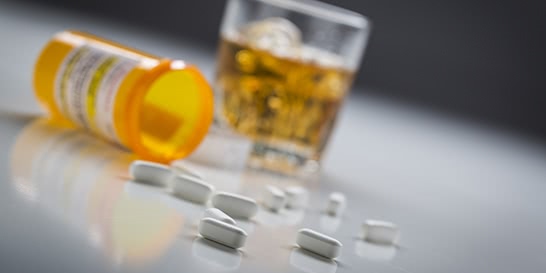Our content undergoes rigorous expert review, evidence-based research, and regular updates for accuracy.
With headlines of Carrie Fisher’s death being linked to Sleep Apnea and drug use, it’s important to understand how drugs and alcohol affect Sleep Apnea. This common sleep disorder can eventually lead to serious health complications and dramatically impact your overall health and wellness. Adding alcohol consumption and drug use can further exacerbate symptoms of Sleep Apnea.
Understanding Sleep Apnea

Before we get into the effects of consuming drugs or alcohol while suffering from Sleep Apnea, let’s look at what happens when Sleep Apnea strikes. The muscles in the throat tend to relax, increasing the potential for the throat to close the airway. This narrowing leads to shallow breathing or even a total cessation of breathing several times throughout the night. During these apneas, the brain and the rest of the body are not receiving oxygen, causing the dangerous health implications of Sleep Apnea. Knowing what happens under this condition can be helpful in understanding how drugs and alcohol affect Sleep Apnea.
How Does Alcohol Affect Sleep Apnea Symptoms?
You might be thinking, “Having a drink can help me sleep better. How would alcohol affect Sleep Apnea?” Alcohol is a central nervous system depressant, which refers to its ability to slow down the normal rate of communication between the brain cells and the spinal cord. Since breathing is controlled by the central nervous system, consuming alcohol can trigger breathing issues that can amplify Sleep Apnea symptoms in some individuals. Breathing tends to become shallower, and those who consume alcohol in excess (more than one drink per hour) put themselves at much greater risk of airway blockage.
The possible results of alcohol consumption include increased Sleep Apnea episodes, a reduced amount of oxygen the body is able to take in through normal breathing, and hypercapnia or excessive amounts of carbon dioxide in the blood. Individuals with diagnosed Sleep Apnea can subject their bodies to severe levels of stress if alcohol consumption happens too often or excessively.
What Happens When You Take Medication with Sleep Apnea?
While various medications, both prescription and non-prescription, tend to affect people differently, there are several drug groups that can exacerbate Sleep Apnea symptoms. Anti-anxiety medicine, like benzodiazepines, are often used as a sedative during surgery or are given to individuals to use occasionally to help manage anxiety. Just like how alcohol slows down the response rates throughout the central nervous system, these types of drugs can do the same, effectively triggering central or obstructive Sleep Apnea.
Opioids are another class of drug that can have a great impact on Sleep Apnea sufferers. Generally used in painkillers or cough medicine, opioids may induce sleepiness and fatigue, as well as minimize pain, but can lead to breathing-related problems if used excessively. Accidental suffocation is another real concern for Sleep Apnea patients who are prescribed opioids for pain. Most physicians will refrain from prescribing either of these common medications if you disclose that you have Sleep Apnea, as the risks are simply too great.
Other prescription drugs that can cause sleep issues are:
- Antidepressants
- Diet pills
- Inhaled respiratory drugs
- High blood pressure drugs, like beta blockers
- Steroids, including prednisone
- ADHD stimulant medications
- Oral contraceptives, or hormones
Non-prescription drugs can also cause sleep issues and make Sleep Apnea symptoms worse. Some of the leading offenders are:
- Cough and cold medicines
- Painkillers with caffeine
- Sudafed, or anything with pseudoephedrine
- Nicotine, whether taken via a patch or through tobacco use
Drugs and alcohol are not a good mix for a restful night’s sleep, especially if you already suffer from Sleep Apnea. It may only exacerbate the effects of Sleep Apnea. If you’re concerned about Sleep Apnea symptoms in yourself or a loved one, make sure that you are properly diagnosed. When you understand how drugs and alcohol affect Sleep Apnea, you can start receiving treatment to alleviate symptoms and help you breathe, sleep, and live better.








